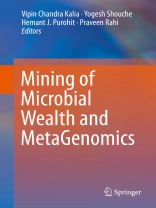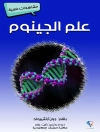The existence of living organisms in diverse ecosystems has been the focus of interest to human beings, primarily to obtain insights into the diversity and dynamics of the communities. This book discusses how the advent of novel molecular biology techniques, the latest being the next-generation sequencing technologies, helps to elucidate the identity of novel organisms, including those that are rare.
The book highlights the fact that oceans, marine environments, rivers, mountains and the gut are ecosystems with great potential for obtaining bioactive molecules, which can be used in areas such as agriculture, food, medicine, water supplies and bioremediation. It then describes the latest research in metagenomics, a field that allows elucidation of the maximum biodiversity within an ecosystem, without the need to actually grow and culture the organisms. Further, it describes how human-associated microbes are directly responsible for our health and overall wellbeing.<
Jadual kandungan
1. Rhizosphere Microbiome Metagenomics: Elucidating the Abditive Microflora.- 2. Rhizosphere microbiome and its role in plant growth promotion.- 3. Microbial community dynamics during soil ecosystem development.- 4. Bacterial Diversity in Cold Environments of Indian Himalayas.- 5. The Microbiome of the Himalayan Ecosystem.- 6. Microbes and mountains: The mid-domain effect on Mt. Fuji, Japan OR Humpback trends in microbial diversity on Mt. Fuji.- 7. Rare Biosphere in Human Gut: A less explored component of human gut microbiota and its association with human health.- 8. Metagenomic Insights into Microbial Diversity and Metabolic Potential of Hot Spring Ecosystems.- 9. Bioprospecting gastrointestinal microflora of common fishes for disease control in aquaculture.- 10. Marine sponge associated microbiome: reservoir of novel bioactive compounds.- 11. Metagenomic insights into herbivore gut: An application based perspective.- 12. Soil metagenomics: A tool for sustainable agriculture.- 13. Soil microbiome for enhanced crop productivity.- 14. Plant associated microbial endophytes as promising source of biotechnological applications.- 15. Bifidobacterial Probiotics through Fermented Foods.- 16. Enterococci prevalent in processed food products: From probiotics to food safety.- 17. Fermented foods, microbiota and human health.- 18. Metagenomics of Fermented Foods: Implications on Probiotic Development.- 19. Probiotics from fermented foods.- 20. Dietary impacts on the composition of microbiota in human health and disease.- 21. Microfungi for the removal of toxic triphenylmethane dyes.- 22. Applied aspect of Microalgae in Monitoring of Heavy Metals.
Mengenai Pengarang
Dr. Vipin Chandra Kalia is an Emeritus Scientist of the CSIR Institute of Genomics and Integrative Biology, Delhi. He holds an M.Sc. and Ph.D. in Genetics, both from the Indian Agricultural Research Institute, New Delhi. Further, he is a Fellow of the National Academy of Sciences, National Academy of Agricultural Sciences, and Association of Microbiologists of India.
His main areas of research are microbial biodiversity, bioenergy, biopolymers, quorum sensing and quenching, and drug discovery. He has published more than 100 papers in scientific journals including Nature Biotechnology, Biotechnology Advances, and Bioresource Technology.
He has authored 14 book chapters. He has edited seven books and is currently the Editor-in-Chief of the Indian Journal of Microbiology (since 2013) and Editor of several journals, including the Journal of Microbiology & Biotechnology (Korea) and Dataset Papers in Microbiology. He is a member of numerous professional associations, including the Society of Biological Chemists of India and the Biotech Research Society of India (BRSI). He can be contacted at: [email protected]; [email protected]
Dr. Yogesh Shouche is a scientist at the National Centre for Microbial Resource, National Centre for Cell Science, Pune. After working on different aspects of the microbial, especially bacterial, diversity of various ecological niches, his research is now focuses on understanding the succession of microbial communities in human gut during development and their role in health and diseases. He has worked for 25 years in the fields of microbial ecology, microbial molecular taxonomy and biodiversity; published more than 200 publications in journals of relevant area; reviewed publications in international journals like FEMS Ecology, the International Journal of Systematic and Evolutionary Microbiology and Microbial Ecology. His works have been cited 5662 times with an h index of 37 and an i10 index of 147. He is also on the editorial board of prestigious journals such as Current Science, the European Journal of Soil Biology, Plos One and Scientific Reports. In 2009, he was given responsibility for the establishment of the National Centre for Microbial Resource (NCMR). Dr. Yogesh now heads a large group of researchers at NCMR including 30 scientists and technicians.
Dr Hemant J. Purohit is the head of the Environmental Biotechnology & Genomics Division, National Environmental Engineering Research Institute (CSIR), Nagpur. He is also a professor at Ac SIR (Academy of Scientific and Innovative Research), New Delhi. He completed his Ph D at Nagpur University in 1986, and has been involved in designing a strategy for capturing microbial diversity by interfacing culturable and DNA fingerprinting tools; developing genomics based monitoring tools for EIA and bio-remediation process; studying stress-dependent microbial response usingdynamic gene expression and its application in bioprocess optimization; and developing better insights into microbial capacities for utilization of organics through genome sequence analysis. He has been project coordinator for a number of high value projects and has 225 publications to his credit. His Google scholar citations is 4711 (as of June 5th, 2017), and he has an h-index of 38 and i10-index of 111. He has supervised 25 Ph D students and more than 100 MSC student dissertations. He is a recipient of a number of prestigious awards, including the Fogarty International Exchange Program Fellowship; Commonwealth Fellowship, Department of Biochemistry, University of Hull, UK; and CSIR Research Fellowships (JRF and SRF).
Dr. Praveen Rahi is a scientist at the National Centre for Microbial Resource, National Centre for Cell Science, Pune. His main areas of research are microbial ecology, plant-symbiont interactions, microbial taxonomy, and microbial proteomics. He haspublished 25 papers in scientific journals such as Molecular Ecology, Frontiers in Microbiology, Microbial Ecology, Applied Soil Ecology and Fungal Biology. He has reviewed publications for various international journals like BMC Microbiology, Current Science, Frontiers in Plant Science and Soil Biology and Biochemistry. He is presently hosting a research topic “MALDI-TOF MS Application in Microbial Ecology Studies” as a guest editor for Frontiers in Microbiology. He was awarded the Young Scientist Award in Agriculture Microbiology (November 2013) by the Association of Microbiologist of India and selected as Young Associate (Life Science 2015) by the Maharashtra Academy of Science (MAc S), Pune, India.












